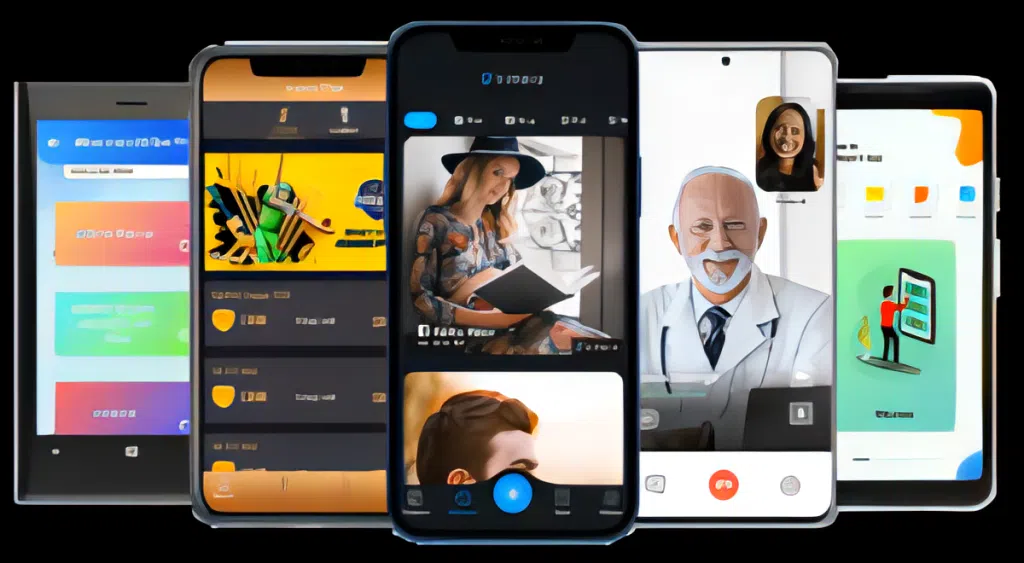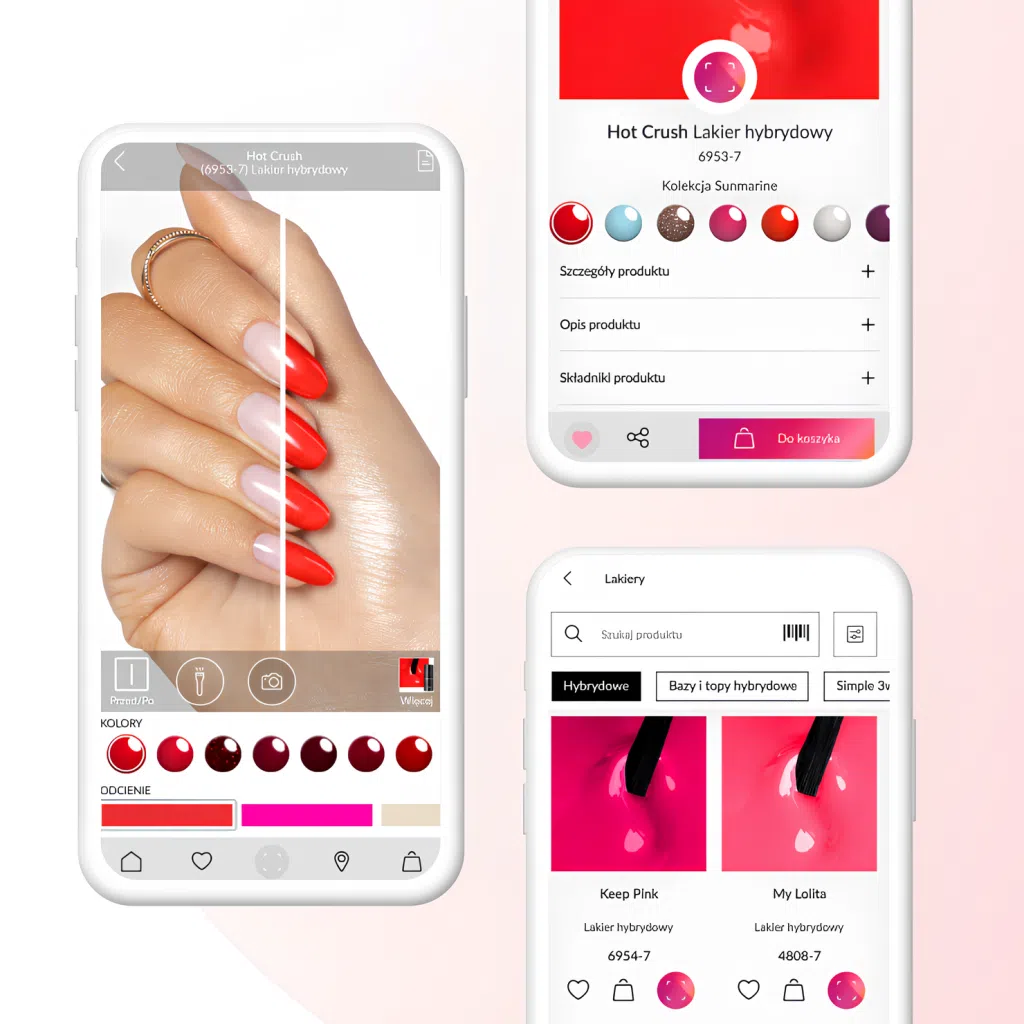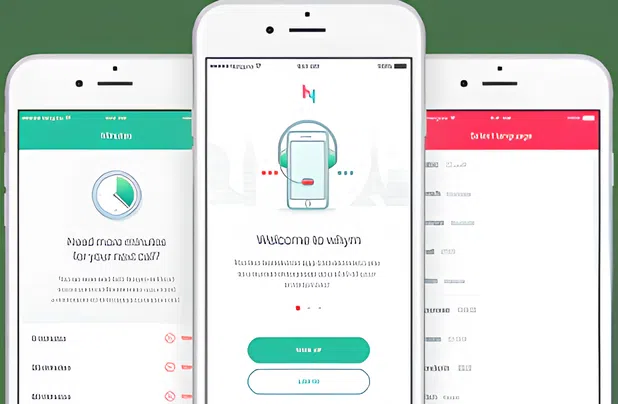Native app development entails creating an app for a certain mobile operating system, such as iOS or Android. The operating system’s official SDK is used for this type of development.
Hybrid app development is a combination of web technology and native code to develop an app that works on both Android and iOS. The Hybrid apps are easier and faster to create than native apps. As a result, many developers find them appealing.
The process of creating cross-platform applications is an app that will work on multiple mobile platforms, such as Android and iOS. The app code is written once and then adapted to work on each platform.
App prototyping is the process of creating a low – fidelity version of an app. This is usually done so that features and user flows can be tested quickly. Prototyping can be done with tools like Adobe XD or Sketch, and it’s a great way to get feedback on an app before it’s fully built.
PWAs, or Progressive Web Apps, emulate native apps with enhanced speed, reliability, and security compared to regular web apps. This makes them a compelling choice for mobile app development
Testing a program before release is crucial to ensure its functionality, encompassing usability, performance, and security testing. Thorough testing is essential for ensuring that an application operates seamlessly on both Android and iOS platforms.


Technologies: C++, Python, Kotlin, Swift, OpenCV, TensorFlow, Tensorflow Lite, React, Streamlit, Labelbox & V7, Neptune.ai
Platforms: iOS & Android
Client Expectations:
Result of the partnership: After launching the app, NEONAIL users could enjoy trying on various nail colors, shapes, and patterns in real time with a seamless experience where they can purchase products they like.

Technologies: C++, Python, Kotlin, Swift, OpenCV, TensorFlow, Tensorflow Lite, React, Streamlit, Labelbox & V7, Neptune.ai
Platforms: iOS & Android
Client Expectations:
Result of the partnership: After launching the app, NEONAIL users could enjoy trying on various nail colors, shapes, and patterns in real time with a seamless experience where they can purchase products they like.
“It’s challenging to provide a precise monetary quote as building a mobile app involves various factors, such as scope and budget. To get an accurate cost estimate, please request a project estimation.
For instance, if you intend to have both an iOS and Android app using cross-platform development, a single team of specialists can handle both platforms.
On the other hand, if you opt for native development, you’ll require two teams of mobile app developers, which tends to be more expensive. If you’re uncertain, don’t worry – our experts are available to offer advice and guidance.”
“Diverse experts collaborate within their respective domains to create a thriving mobile application.
Netguru’s mobile app development team is organized into distinct groups, including iOS, Android, React Native, and Flutter teams, comprising over 80 seasoned engineers.
Netguru also employs mobile managers, tech leads, app designers, and developers. Additionally, the team includes project managers, UX/UI designers, quality assurance specialists, backend developers, and machine learning engineers. The composition varies based on the project’s scope and client requirements.”
“The choice of technology for your mobile app development depends on various factors, including the nature of your app, your personal preferences, and guidance from experts like us – we’re here to assist you.
It’s essential to make the right technology decisions, whether you opt for a platform-specific native app (using Swift and Objective-C for iOS, or Kotlin and Java for Android), a cross-platform app (commonly developed with React Native or Flutter), or a hybrid app.”
“We will designate a dedicated Project Manager to oversee the app development team, keeping you informed at every stage. The Project Manager will provide regular updates, ensuring effective communication and collaboration with our team of specialists working on your app. Additionally, we’ll incorporate Quality Assurance and DevOps professionals from the project’s inception to guarantee the flawless integration of your app, covering both back-end and front-end aspects.”
“The timeline for developing your app is influenced by factors such as the complexity of your project and its current stage and structure. The duration varies for each stage, and if you’ve already completed initial tasks like drafting the project brief and conducting research, the overall time can be reduced. From conceptualization to launch, the process can span anywhere from three to nine months. Engaging a team of skilled full-stack developers and experts ensures an efficient path to market, minimizing any potential delays in getting your mobile app launched.”
“Ensuring robust data security has become increasingly crucial and challenging. Nevertheless, we consistently enhance and exchange our expertise in security, vowing never to launch a product deemed insecure. Our commitment to security includes regular security audits, and we adhere to external standards like OWASP’s ASVS, OTG, and MSTG. Prior to initiating the mobile app development journey, we will establish stringent processes to uphold these principles, ensuring that your product is fortified against potential threats before it reaches the market.”
Planning to transfrom your idea into an impecable reality? Talk to our consultants and we will help you to work it out